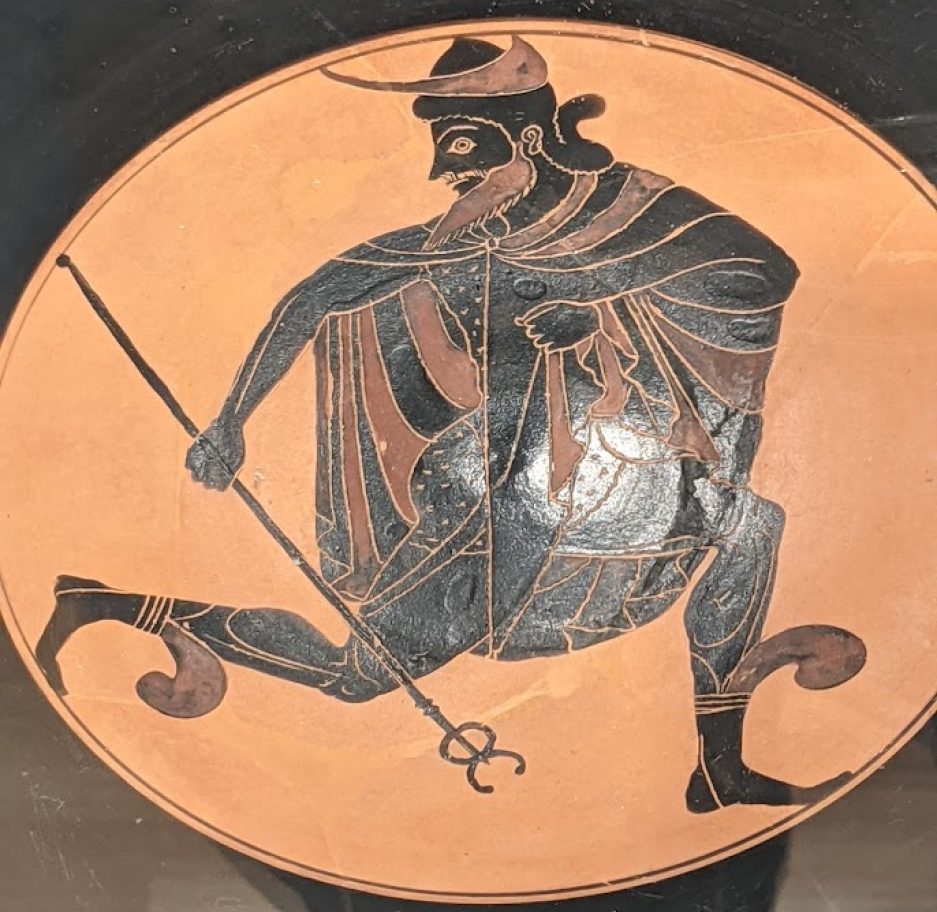The joy of a marriage turned to despair,
Which music, though sweet, could never repair.
Eurydice danced with nymphs in the field,
Where serpents their poisons as weapons wield;
A snake in the grass bit her, and she died;
No cure for the poison could be applied:
And Orpheus mourned, consumed by his grief,
No beautiful sound or sight gave relief:
He charmed the world when he played on his lyre;
His songs had power to please and inspire.
So, he determined to go to the dead,
Not fearing the deep, with courage he tread
To Tartarus where Hades holds his court,
With Persephone, his cherished consort;
There was Cerberus, great Hades’ own hound
Beguiled by the sweet and lyrical sound;
So passed he among the ghosts of the deep,
Whoe’er heard his songs ceased promptly to weep.
At last, he arrived and stood before he
Who ruled this realm as the chief diety;
And Orpheus played his lyre for the king,
With skill did he play, with grace did he sing.
And Hades was pleased, and told Orpheus
His wife could return, only if he did thus:
He must go ahead of her, his true love,
And never look back till they were above,
Only when both had returned to the light,
Could he look back, and behold with his sight
His wife. And Orpheus was delighted,
Agreeing at once, the two alighted.
And Orpheus looked ahead with his eyes,
He kept the command and didn’t despise
The lord of the dead. He emerged from the cave,
But then he did something fatal and grave;
Though Eurydice still had not emerged,
He desired to see her, and his heart urged
Him, so that he turned and saw with his eyes
The woman he loved, and instant she cries
“Goodbye”. She faded, returning below
To the land where Styx and Acheron flow,
And Phlegethon and the Cocytus too:
And there was nothing at all he could do.
Lost to the living, he saw her no more,
Down like a river did all his tears pour;
To the underworld, he could not return,
No matter if love did in his heart burn:
So he sat and he played a mourning song,
Until he was found by a Maenad throng;
The followers of the son of Zeus raged
In divine frenzy, they could not be assuaged:
They tore him to pieces, such was his end,
But still for his music do men commend
His name; and the Muses took up his head,
And still did it sing after he was dead,
So that through the Earth, his music still flew,
Soothing and beautiful, gentle and true.
Category: Orpheus
Orpheus and the Sirens
The Sirens sang and every Argonaut,
He heard their song, and languidness it brought;
Homecoming longed for would not be attained,
But all their strength, their will, would then be drained.
The ship itself they would have run aground,
If Orpheus had not within him found
So great a store of the divine, that he
Yet took his lyre, and plucking was set free;
And not himself alone he saved, but they
Who sailed with him, they also fled away.
A lively march he played to energize,
Thus drowning out the Sirens’ fatal cries.
Then Zephyr rose; soon they were out of reach,
Of the bewitching Sirens’ song and speech:
But Boutes, son of Teleon, he leapt
Into the sea, to swim for shore, but swept
Away was he, else he had swum to shore
And died, his bones to lay there evermore.
But Cypris, Erycian queen, did look
With pity on his soul, and so, she took
Him up into her seaside haven, while
The Argonauts sailed safely from the isle.
